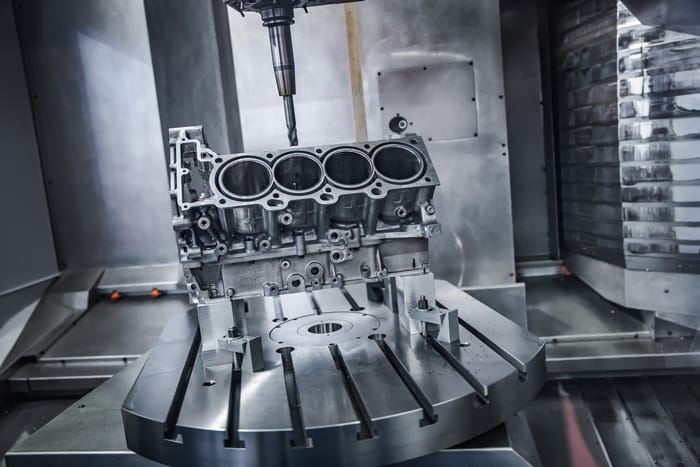CNC machine. The term CNC stands for “Computer Numerical Control”, and the definition of CNC is that this machine is a machine used in manufacturing processes that usually use computerized control and machine tools. The most dominant advantage is the speed in the production process, so it is suitable for mass production.

The first CNC machines were created in the 1940s and 1950s, by modifying ordinary machine tools. Initially this machine was intended to manufacture complex workpieces but due to the manufacturing cost and large volume of control units few companies were willing to invest in the development of this technology. 1975 was the year when this automatic control machine began to develop rapidly due to the presence of a microprocessor so that the volume of the control unit could be reduced and simplified. Currently, CNC machines have been widely used in all fields, such as in education and research, and of course in national/international scale industries.
6 Main Parts of CNC Machine
- Program
- Control Unit or Processor
- Workpiece Clamp
- Servo electric motor to drive tools control
- Electric motor to move/rotate the tool (spindle)
- Cutting Tools (chisel)
- Holder and tool holder (Holder)
CNC Working Principle
First, make a CNC program according to the product that will be made by typing directly on the machine HMI or made on a computer with CNC programming software.
The CNC program, better known as the G-Code, is then sent and executed by the processor on the CNC machine to produce servo motor settings on the machine to move the moving tools to perform the machining process to produce the product according to the program.
CNC Machining Process Flow
Evolved from a numerical control (NC) machining process that uses punched tape cards, CNC machining is a manufacturing process that uses computerized controls to operate and manipulate cutting machines and tools to shape workpieces for example, metal, plastic, wood, foam, etc. Although there are so many types and processes in CNC machining, the basic principles of the processes remain largely the same. The basic CNC machining process includes the following stages:
Designing CAD models
Convert CAD files to CNC programs
Preparing the machine
Perform machining operations on the machine

